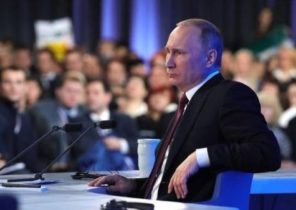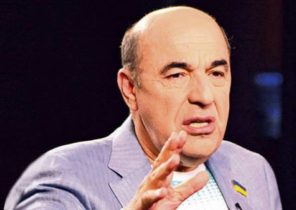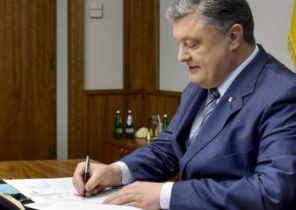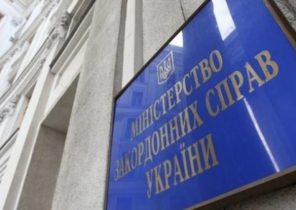
Background “evaluation of the activities and intentions of Russia in American elections”: the analytical process is the identification of the authors of cyber-incidents.
“Evaluation of the activities and intentions of Russia in American elections” is a part of the declassified top secret report submitted to the President and the parties, a list of which is approved by the President.
- The intelligence community is very rarely fully disclose their knowledge or to describe the basis for accurate analysis, as disclosure of such information may lead to disclosure of sources and methods, and this jeopardizes the possibility to extract important information in the future.
- Thus, although the disclosed part contains the conclusions reflected in classified, it is not and cannot be all supporting information, including specific sources of information and methods of obtaining them.
The analytical process
The task of the intelligence community is to reduce the level of uncertainty around the intentions, actions and capabilities of foreign leaders. To achieve this goal is not easy, especially when it concerns complicated issues in respect of which foreign leaders took serious steps to conceal their intentions.
- In the Affairs of US national security intelligence analysis should provide the political leadership assessment, which would be impartial, objective, timely, useful, and relevant standards of the working methods of intelligence.
- Standards methods of intelligence in matters of intelligence were defined in a period of 10 years. The standards include a description of the sources (including reliability of and access to the transmitted information), a clear expression of uncertainty, a clear distinction between basic information and insights and assumptions of analysts, the study of alternatives, the demonstration of significance for the client, the use of clear and transparent logic, as well as an explanation of changes or sequence of statements over time.
- The application of these standards is intended to ensure that the intelligence community provide American politicians, military and operatives the most accurate and best information, warning, and context, as well as provide a potential opportunity to improve the situation in the sphere of national security of the United States.
The intelligence community gathers information from extensive sources, including the information passed by the people, collected through technical means and data from open sources, and uses special skills and structural analytical tools to draw conclusions based on available information and in accordance with past actions, and using logic. The aim is to provide information about what is happening and predictions about the future.
- An important part of the analysis refers to the explanation of the possible inaccuracies of large judgments related to the quality and quantity of information, missing data and complexity of the problem.
- Using words like “we believe” or “we tried”, the intelligence community reported analytical assessment or judgment.
- Some of the analytical conclusions directly based on collected information, others rest on previous judgments, which are used as building blocks in a dispassionate analysis. In any case, the judgment standards described methods of intelligence shall ensure that conclusions are made based on solid data.
- The judgment of the intelligence community often includes two key elements: a judgment about the likelihood that something happened or will happen (using such estimates as “likely” and “probably not”) and the degree of confidence in these findings (high, medium and low), which refers to evidence, logic, reasons, and precedents on which to base judgments.
The identification of the authors of cyber-incidents
Given the nature of cyber-space the task of establishing the authors of cyber incidents is difficult, but not impossible. Any operation in the cyber space, malicious or not, leaves a mark. Intelligence community shall use the information, constantly growing database of previous incidents and data on those who resort to such practices, as well as their knowledge about the working methods of harmful elements and tools to trace these transactions to their source. In each case they use the same standards of the working methods of intelligence that have been described in the analytical process.
- Analysts consider a series of questions to compare information with existing knowledge and to change their degree of confidence in judgment, to include all possible alternative hypotheses and ambiguity.
- The finding of the authors is not confined to a simple statement about who did it. It is a series of judgments about whether it was an isolated incident, who likely made it, for what purpose, and whether playing a foreign government any role in giving the order about the operation and its implementation.
The subject and sources
In the preparation of this report has used information available on 29 Dec 2016
The subject
This report includes estimates and judgments, compiled and coordinated the Central intelligence Agency (CIA), Federal Bureau of investigation (FBI), national security Agency (NSA), and based on information collected and processed by these agencies. It includes the motives and the essence of the intentions of Moscow regarding the US elections and the use of Moscow cybernetic tools and means of propaganda to influence public opinion in the United States. The evaluation concerns the actions aimed at the election of the President of the United States, and takes into account previous attempts by Russia to exert influence. When you use the word “we”, it means that we are talking about all three agencies.
- This report is a declassified version of a highly secret document. It contains the same findings, but does not include all accompanying information, including specific information about the key elements of the campaign effects. We have also made minor edits to make the document more readable.
We make no conclusions regarding the consequences of Russian attempts to influence the elections in 2016. The US intelligence community must monitor and assess the intentions, capabilities and actions of foreign elements, and not to analyse public opinion in the US and American political processes.
- There is a new information that allows more accurate learning of Russian activity.
Sources
Many of the key judgments in this report are based on a lot of information from a variety of sources and consistent with our view of Russian behavior. Consideration of effort, including specific cyber operations, and the Russian views on key American players relies on numerous support sources.
Some of our conclusions about the intentions and preferences of the Kremlin based on the behavior of the Pro-Kremlin political figures, state-run media, Pro-Kremlin players in social networks, all of which are either directly used by the Kremlin to send the messages to, or is accountable to the Kremlin. The Russian leadership has invested heavily in foreign and domestic propaganda and attaches great importance to demonstrate that it considers its consistent interpretation with positive feedback about their desires and “red lines”, whether about Ukraine, Syria or relations with the United States.
Assessment of Russia’s actions and intentions to the American elections
Key judgments
Russian attempts to influence the election in 2016 became the latest example of a longstanding aspirations of Moscow to undermine the liberal democratic order of the United States. But the last action was much more significant from the point of view of openness, level of effort and scale of activities compared to previous attempts.
We believe that the President of Russia Vladimir Putin ordered to hold the 2016 campaign influence on the American presidential election. The Russian aim was to undermine public confidence in the democratic process, the denigration of Clinton and undermining its chances of winning and a potential presidency. We also believe that Putin and the Russian government obviously preferred the elected President of the trump. We firmly believe in these estimates.
- We also believe that Putin and the Russian government has clearly favored the elected President Trump, if possible discrediting of Secretary of state Clinton and exposing her in an unfavorable light compared to him. All three agencies agree with the conclusion. The CIA and the FBI are experiencing a high degree of confidence in this assessment, NSA — average.
- Moscow’s attitude has changed in the course of the campaign in line with how Russia assess the chances of both candidates to win. If Moscow believed that Clinton’s chances to win, campaign influence, they tried to undermine her future.
- Additional information since the day of the elections, combined with Russian behavior since the beginning of November strengthens our confidence in conclusions regarding Russian motives and goals.
Campaign influence was based on the communication strategy, combining as secret intelligence operations such as cyber-attacks, exposed the efforts of the agencies of the Russian government, the state media, third party intermediaries and paid users of social media, known as “trolls”. Russia, like its Soviet predecessor, in the past pursued a secret campaign of influence, focusing on the American elections, using intelligence agents and media publications to undermine the chances of candidates, which Russia considered hostile.
- Russian intelligence agencies conducted cyber-operations against targets associated with the U.S. presidential elections in 2016, including against targets of both major political parties.
- With a high degree of confidence we believe that the Russian military intelligence GRU used a man Guccifer 2.0 website DCLeaks.com to publish compromising information obtained in the cyber-operations, and transfer the materials as exclusive information for different media, and send the related data to WikiLeaks.
- Russian intelligence received and retained access to many of the American electoral commissions, local and state level. The Department of homeland security believes that systems compromised by Russian agents, were not involved in the counting of votes.
- Russian state propaganda machine was in effect, acting as a platform for the Kremlin’s passing on messages of the Russian and foreign audience.
We believe that Moscow will take into account the lessons of the campaign’s influence on U.S. elections carried out on the orders of Putin, and will apply them in other countries, including against us allies and their electoral processes.
The Russian campaign against the influence of the US presidential elections in 2016
We believe that the President of Russia Vladimir Putin ordered to start a campaign to influence the U.S. presidential election in 2016. Russia’s goal was to discredit the democratic process in the United States in the eyes of voters, the slandering of Clinton, hindering her possible election and possibly the presidency. We also believe that Putin and the Russian government has demonstrated a clear preference for the elected President of the Trump. In case, when Russia believed that Clinton’s chances to win the election, Moscow tried to strike at her future presidency.
- We also believe that Putin and the Russian government has clearly favored the elected President Trump, if possible discrediting of Secretary of state Clinton and exposing her in an unfavorable light compared to him. All three agencies agree with the conclusion. The CIA and the FBI are experiencing a high degree of confidence in this assessment, NSA — average.
- We believe that trying to influence American elections, the Kremlin has sought to fulfill its long-standing plan to delegitimize the American liberal-democratic order, the spread of which Putin and senior Russian officials considered a threat to Russia and the Putin regime.
- Putin openly pointed to the scandal with Panamanian documents and the doping scandal at the Olympics as the United States attempts to embarrass Russia. This suggests that he wanted to make the disclosures and to represent the United States as a hypocritical country.
- Putin, most likely, wanted to discredit Secretary Clinton, since 2011, has openly accused her of provoking mass demonstrations against his regime in late 2011 and early 2012, but also because they harbored anger on the negative statements in his address.
We believe that Putin, his advisers and the Russian government openly preferred the elected President of the trump Secretary of state Clinton.
- Starting in June, Putin in public comments about the us elections tried to avoid direct praise of trump, as Kremlin officials probably believed that this expression of support will hurt him in the US. Despite this, Putin openly expressed a preference stated trump’s intention to cooperate with Russia and Pro-Kremlin figures welcomed the fact that considered him friendly to Russia’s position on Syria and Ukraine. Putin publicly opposed the attitude of the elected President of Russia with the “aggressive rhetoric” of the Secretary of state.
- Moscow also believed the election of a President of the trump way to create the international antiterrorist coalition against the “Islamic state in Iraq and the Levant” (ISIL, is prohibited in the RF group — ed.).
- Putin had a good experience with Western leaders, whose business interests made them prone to making deals with Russia. Examples include former Prime Minister Silvio Berlusconi and former German Chancellor Gerhard Schroeder.
- Putin, Russian officials and Pro-Kremlin experts immediately after the election ceased criticism of the American electoral process as unfair, as Moscow, probably felt that it would be counterproductive and hurt to build good relations.
We believe that the campaign impact was designed to increase the chances of trump’s victory, discrediting possible Clinton publicly exposing her in an unfavorable light compared to him. When Moscow seemed that Clinton is more likely to win, campaign effects focused on challenging the legitimacy of Clinton and the attempt from the outset to damage her presidency, including casting doubt on the integrity of the election.
- Before the election, Russian diplomats have openly condemned the American elections and was prepared to openly Express doubts about the veracity of the results. Pro-Kremlin bloggers were preparing a campaign on Twitter, #DemocracyRIP, which was to begin immediately after the vote in case of a victory of Clinton. This follows from their actions in social networks.
The Russian campaign was multilateral
Use the Moscow-revelations during the American election was unprecedented. But the rest of the campaign impact was followed by a well-known Russian strategy, combining as secret intelligence operations such as cyber-attacks, exposed the efforts of the agencies of the Russian government, the state media, third party intermediaries and paid users of social media, known as “trolls”.
- We believe that campaign effects are approved at the highest level, especially of great political importance.
- Campaign of influence of Moscow reflected the years spent on improving the abilities, honed in the former Soviet republics.
- By nature of the Russian campaign, the influence of multilateral and arranged so as to be able to deny the fact of their conduct. They use a mixture of agents of influence, agents, front organizations and provocations. Russia demonstrated this during the crisis in the East of Ukraine in 2014, posting troops and advisers in the Eastern regions and publicly denying their presence.
Campaign the Kremlin’s influence in American elections included the exposure by using information obtained by cyber operations, the invasion of computers in American electoral commissions, both local and at the state level — as well as the open propaganda. Russian intelligence has collected information by which campaign effects became possible, and received the necessary information.
Cyber-espionage against American political organizations. Russian intelligence agencies conducted cyber-operations against American political organizations associated with presidential elections in 2016, including the two major political parties.
We believe that the Russian security services had gathered information against the main participants of the elections, think tanks and lobbyists, which they considered to be the main factors determining the future policy of the United States. In July 2015, Russian intelligence had gained access to computers of the Democratic national Committee and retained at least until June 2016.
- GRU, probably the beginning of cyber operations against the U.S. election in March 2016. We believe that the actions of the GRU was hacked private mailboxes functionaries of the Democratic party and politicians. In may, GRU received a lot of information from computers of DNA.
Disclosure of information collected by Russia. With a high degree of confidence, we believe that GRU used a man Guccifer 2.0 and DCLeaks.com and WikiLeaks to publish collected during cyber operations compromising materials and transmit them to the media.
- 2.0 Guccifer, who called himself an independent Romanian hacker who made many contradictory and false statements about its likely of Russian origin during the elections. Publications in the press testified that the name Guccifer 2.0 was hiding more than one person who had contact with journalists.
- Information received, according to our estimates, during the cyber operations of the GRU in March 2016, was published on the website DCLeaks.com.
We with a high degree of confidence believe that GRU gave the materials stolen from DNA and high-ranking officials of the Democratic party WikiLeaks. Most likely, Moscow chose WikiLeaks because of its self-proclaimed reputation of a source that publishes only authentic materials
- In early September, Putin has publicly stated that WikiLeaks published information is very important. He called the search for sources attempt to divert attention and denied that Russia is at the state level involved.
- The main propaganda tool of the Kremlin’s RT (formerly Russia Today) is actively cooperating with WikiLeaks. According to Russian and Western media, editor-in-RT met with WikiLeaks founder Julian Assange in London in 2013, and discussed with him the renewal of the contract for his transfer to RT. Russian media later said that RT was “the only Russian media company” that supported a partnership with WikiLeaks and obtained access “to the new leaks of classified information.” RT constantly with sympathy and describes Assange gives him a platform to criticize the United States.
Those associated with the election of exposure correspond to the models of actions of the Russian special services on the use of the stolen information in the course of attempts to influence such players as Olympic athletes and foreign governments. Efforts include the publication or correction of personal information, hacking and publication of emails.
- An important target of such action after the Summer Olympic games of 2016 was the World anti-doping Agency (WADA). We believe that the GRU had published the stolen information, including about the American athletes.
Russia collected information about and associated with the Republican structures, but has not conducted comparable campaign to expose.
Russian cyber-invasion to the computers of the electoral commissions at the local level and the state level. Russian intelligence had access to many electoral commissions at the state level and at the local level. Since the beginning of 2014 the Russian special services studied the American electoral process and the equipment used.
- The Department of homeland security believes that Russian intelligence hacked equipment was not involved in the counting of votes.
The Russian propaganda efforts. Russian state propaganda machine, including internal media and working for the foreign audience of the global media, such as RT and Sputnik, and a network of quasi-government “trolls”, was in effect acting as a platform for the Kremlin to send messages to domestic and foreign audiences. As progress of the American election campaign, Russian state-run media increasingly positively evaluated elected President of the trump and put in a negative light by Secretary Clinton.
- Starting in March 2016, associated with the Russian government players have begun to openly support the candidacy of trump in the media aimed at English-speaking audience. RT and Sputnik — another state-run media, which produces information for the radio and the Internet in many languages, intended for foreign audiences — regularly claimed that trump gets unfair treatment from the major U.S. media serving the corrupt political establishment.
- The Russian media has welcomed the victory of trump as a proof of selected Putin line support of the global populist movements — the theme of the annual academic conference Putin held in October 2016, and also as evidence of the collapse of Western liberalism.
- Putin’s chief propagandist Dmitry Kiselyov used his weekly news program to describe trump as a victim of a corrupt political establishment and the flawed system of democratic elections. He argued that Trump prevent defeat, as he is willing to work with Moscow.
- Pro-Kremlin agent Vladimir Zhirinovsky, leader of the nationalist liberal democratic party of Russia, before the elections said that, in case of victory of trump, in Russia will be drinking champagne in the hope to get the opportunity to promote their interests in Syria and Ukraine.
RT was described by Secretary Clinton in a negative way, using information from the stolen emails to expose her corrupt, suffering from problems with physical and mental health, and associated with Islamic extremists. Some Russian officials should have in line with the campaign of influence and claimed victory for Clinton in the elections could lead to war between the USA and Russia.
- In August associated with the Kremlin analysts have suggested revenge Western negative articles about Putin by publishing information about alleged problems the Clinton health.
- August 6, RT has published a video in English under the title: “Special report Julian Assange: Is WikiLeaks emails, which Clinton can go to jail?” There was also an interview with Assange under the headline: “Clinton and ISIS get money from one source”. The most popular video RT is called “all charity money Clinton went to them ourselves.” The video has been viewed more than nine million users in different social networks. Most popular video RT about trump with the participation of Assange called “Trump will not win.” It was viewed 2.2 million Internet users.
- Past Russian attempts to influence the election, including on election campaign in 2012 with the aim of presenting the American elections undemocratic, see Appendix a: Russia — Kremlin TV wants to influence policy and to create discontent in the United States.
In trying to discredit Secretary Clinton’s Russia has used RT and trolls. Efforts included spreading scandalous reports about Clinton and about the role of WikiLeaks in the election campaign.
- Probable financier located in Saint Petersburg, the so-called Agency Internet research that brings together professional trolls, is a close ally of Putin, associated with Russian intelligence.
- The journalist, who is considered a leading expert of the Agency of Internet studies, said that some accounts in social networks seem to be involved with the Pro-Kremlin trolls, as they were used to support Russian actions in Ukraine. These users expressed support for Trump in December 2015.
The most daring attempt of influence in the United States
Russian efforts to influence the U.S. presidential elections in 2016 represents a significant escalation compared to previous attempts in the area of transparency, the level of action and scale of effort. We believe that the campaign effects in the presidential elections in 2016 reflects the recognition by the Kremlin of the fact that the massive exposure of American policy have worldwide effect, as well as publish personal and other information made WikiLeaks and other sources, as well as understanding of the value of the revelations for maximum impact the stolen information.
- During the Cold war, the Soviet Union used intelligence officers, agents of influence, forgeries and publications in the media to attack candidates who were considered hostile to the Kremlin, former KGB officer.
After the Cold war, the Russian special services in relation to American elections were mostly engaged in collecting information for foreign intelligence. Decades of Russian and Soviet intelligence agencies have collected information about American parties to understand the plans and priorities of the new governments of the United States.
- The Directorate s (illegals) of the foreign intelligence Service of Russia (SVR) has involved agents that were arrested in the U.S. in 2010, reported to Moscow about the 2008 elections.
- In the 1970s the KGB had recruited an activist of the Democratic party, which reported data on the favorite of the election race Jimmy Carter and about his political plans, said a former KGB officer.
Operation in the election signaled “a new norm” of actions of the Russian intelligence
We believe that the lessons learned from the campaign influence on the United States presidential election of 2016 will be used in other campaigns influence in the United States and around the world, including against American allies and their elections. We believe that the Russian security services will be considered successful this campaign impact, as, in their opinion, they managed to influence the public debate.
- Open Putin’s attitude to the revelations suggests that the Kremlin and the intelligence will continue to resort to exposing operations with the help of cyber technology, considering it the easiest way to achieve their goals without much damage to the Russian interests.
- Russia will try to influence elections in the European countries.
We believe that the Russian security services will continue to increase its ability to provide Putin’s new capabilities against the United States, given the past actions and current efforts. We believe that immediately after the elections in the US, Russian intelligence began the campaign of fraud against the U.S. government officials and individuals associated with think tanks and non-governmental organizations in the sphere of national security, defence and foreign policy. This campaign can provide the materials for future campaigns influence and to gather information about the plans and goals of the new administration.
(To be continued)







